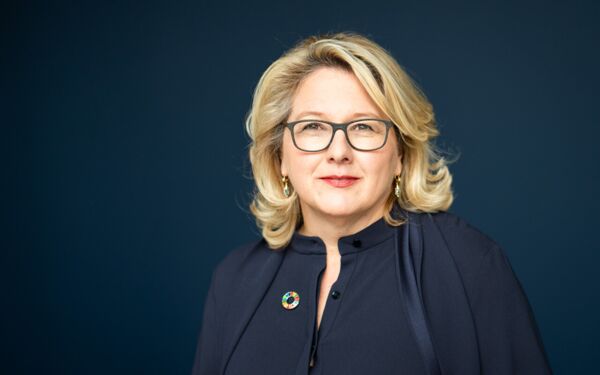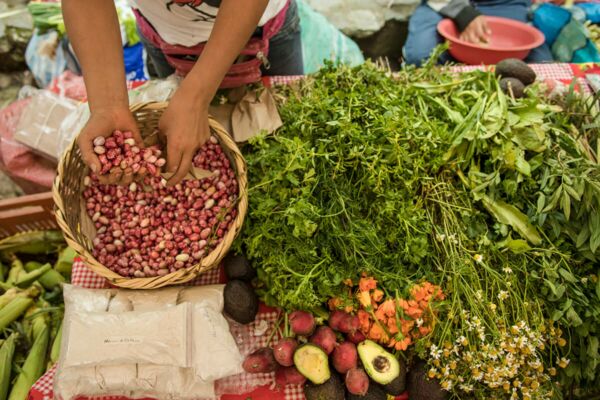Progress for a just world
It has been seven years since Germany's last G7 presidency, when the G7 countries collectively committed to the Elmau goal of lifting 500 million people out of hunger and malnutrition by 2030. Now, another summit under the German G7 presidency is scheduled to take place at Schloss Elmau. "Progress for a just world" is the goal with which the presidency was assumed at the beginning of the year. New impulses for achieving the 2015 Commitment are up for discussion. Global challenges such as the climate crisis and pandemics remain on the agenda. In view of the changed world situation and Russia's war against Ukraine, another crisis is coming into focus. Now all eyes are on the upcoming summit meeting.
Svenja Schulze, German Development Minister, outlines the priorities of the G7 development ministers. Carin Smaller, former IISD and now Executive Director at Shamba Centre for Food & Climate, takes stock: From Elmau then to now, and "Beyond Elmau". Ms. Berns, head of the sub-department "International Cooperation, World Food Supply" at the Federal Ministry of Food and Agriculture, reports on the G7 agricultural line. In the interview Julia Harnal for Business7 and Matthias Mogge for Civil7 as well as Anna-Katharina Hornidge for Think7 give further impulses. In addition, Shivani Kannabhiran, OECD Centre for Responsible Business Conduct, informs about the G7 Sustainable Supply Chains Initiative.
"With the new Federal Government, Germany will not only remain a reliable partner for global development, but will also expand its political commitment. We have a lot to catch up on in order to achieve the goals of the 2030 Development Agenda. As the richest countries on our planet, the G7 have a special responsibility in tackling the Corona pandemic and climate change, and they must show global solidarity with the poorest."
- Svenja Schulze, Federal Minister for Economic Cooperation and Development
Strong signal for global food security
Lead the transformation of agri-food systems towards sustainability and resilience - halting global food insecurity, climate change and biodiversity loss. In a separate commitment, the G7 pledged to protect the most vulnerable, who are currently hardest hit by the food crisis. An additional USD 4.5 billion has been pledged. Beyond the G7, around 100 actors have already joined the Global Alliance for Food Security (GAFS), which was launched by German Development Minister Svenja Schulze and David Malpass, President of the World Bank. An overview of the commitments and the communiqués of the actors involved.
G7 Summit
Final documents of the G7 summit meeting
Global Alliance for Food Security (GAFS)
Global Alliance for Food Security (GAFS)
Ministries
Final documents of the strands
Engagement Groups
German G7 Presidency from different perspectives
The priorities of the German G7 agenda are: Sustainable Planet, Economic Stability and Transformation, Healthy Living, Investing in a Better Future and Strong Cooperation. Science, the private sector, civil society and politics discuss the priorities of the G7 countries.






